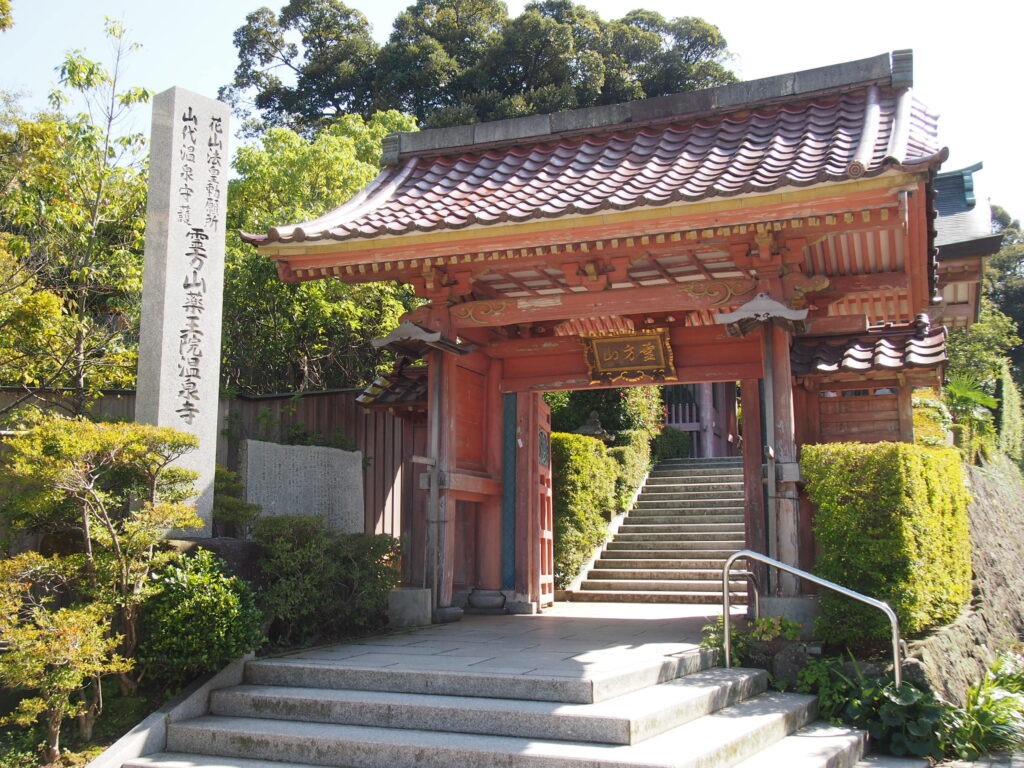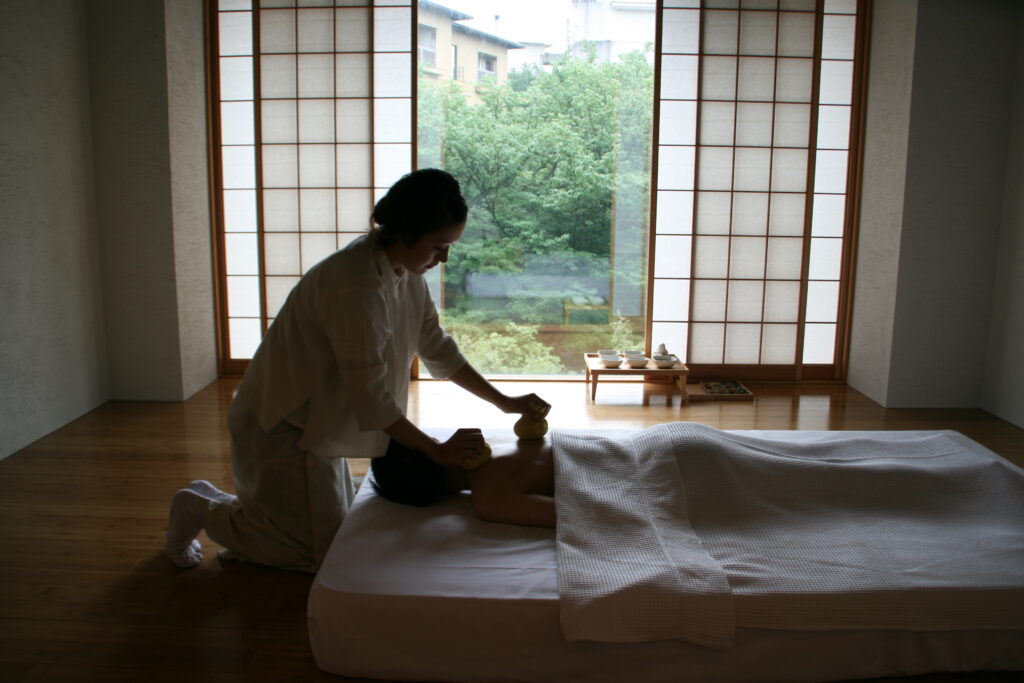1.4 Bathing and spirituality
Every religion recognizes the power of bathing as a way to bring us closer to things outside ourselves. […] Japanese are not an especially religious society these days and are far more spiritual than fearful of a deity or devoted to appeasing gods through prayer and obedience. What we can take from their approach is an understanding that if we know what nature expects of us, we are better able to accept it and ourselves. Some of the time, I feel as if I’m in hot water because I’ve failed or disappointed myself and others, and that decision to embrace failure and self-loathing creates stress. But once I’m actually in hot water, whatever it is that frightens me and makes me miserable seems less intense. Not a cure, but a respite. (page 93-94)

Sachiko: Here in Japan, hot springs are considered to be a blessing of nature, and many hot spring towns have temple protecting the hot springs. Here in Yamashiro Onsen, the Yakuoin Onsenji薬王院温泉寺 temple is dedicated to Yakushi Nyorai薬師如来, the Healing Buddha, that carries a medicine jar in her hand, and the origins of the town are in fact connected to Buddhism. In the Nara period 奈良時代, about 1300 years ago, Buddhist saint Gyoki Bosatsu行基菩薩 the same that discovered Yamanaka Onsen also discovered a hot spring here. He carved a statue of Yakushi Nyorai (Healing Buddha) as the main deity, and enshrined Hakusan God白山大権現 to be the guardian of the hot spring. This was the origin of Yamashiro Onsen’s Yakuoin Onsenji temple. All the Yakushiyama 薬師山 treatments at Beniya Mukayu’s Spa Entei円庭施術院 and the Yakushiyama amenities pay homage to this unique history. Just like the Buddhist monks have been healing people with hot spring water and medicinal herbs for centuries, we aim to do the same but in a modern way. It’s our story. Across the country, there are many hot spring towns that are closely connected to Buddhism: Japanese think that nature and the god accept us, the humans.
When we (Japanese) soak in onsen, we thank nature and the gods who accept us, humans, it is ukeireru受け入れる, a form of acceptance.


Scott: Yes, I think that in Japan, compared to the West, in the most general sense, the idea is: what does nature want from us? How can we be accepted by nature? In the West it’s more about people imposing their authority, we will control nature, we will tell nature what to do. Not individually, but structurally and historically, and to be sure: it’s changing in both the West and Japan.
Sachiko: It is very different. For us, it’s very natural, we don’t accept nature or god, nature or god accepts us, it is a difference.
Scott: That’s a fascinating difference, and a really important one. At its very best, hot springs are a very simple pleasure and an ideal way to join nature, which people readily understand when they experience onsen.





